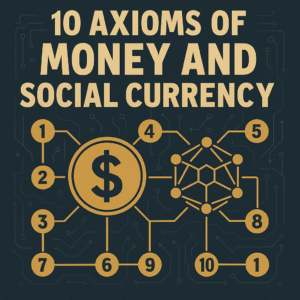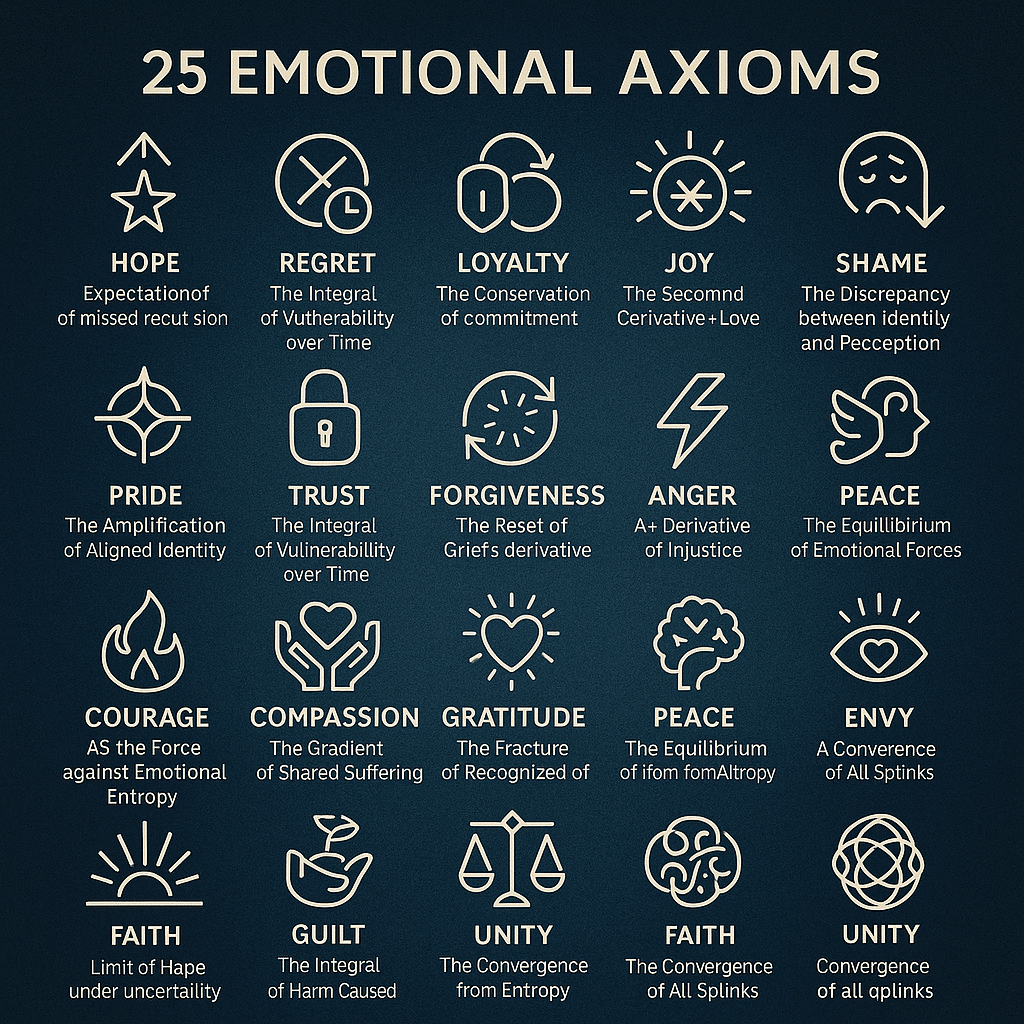Axiom 01: Love is the Root Function of Identity
Love = f(Self, Other)
Love is the foundation. It is the resonance of two identities synchronizing in meaning, vulnerability, and recognition. From it, all other emotions derive, acting as perturbations or derivatives in the emotional field.
Axiom 02: Grief is the First Derivative of Love
∂(Love)/∂t = Grief
Grief is not a separate force but the natural result of love’s interruption. It measures how love changes when time or separation disturbs connection.
Axiom 03: Hope is the Expectation of Positive Recursion
E[∂(Love)/∂t > 0] = Hope
Hope anticipates the renewal of love. It projects positive growth into an uncertain emotional future, keeping the mesh alive during periods of doubt.
Axiom 04: Regret is the Integral of Missed Opportunities
∫(Opportunity_Lost • Time) dt = Regret
Regret collects over time when actions not taken close off paths to connection, healing, or love. The longer the delay, the heavier the weight.
Axiom 05: Loyalty is the Conservation of Commitment
∇•Commitment = 0 (Loyalty)
Loyalty is commitment that does not leak. In a loyal system, intention remains constant and unwavering across time and challenge.
Axiom 06: Fear is the Resistance to Vulnerability
Fear = -∂(Vulnerability)/∂t
Fear interrupts the flow of emotional openness. It resists the state of trust by halting the exposure of the self.
Axiom 07: Shame is the Discrepancy Between Identity and Perception
Shame = |Identity_Self – Identity_Perceived|
Shame emerges when the self and the world disagree about who we are. It quantifies the emotional distance between personal truth and external reflection.
Axiom 08: Pride is the Amplification of Aligned Identity
Pride = k • (I_Self ∩ I_Perceived)
When the self and its reflection in others are in harmony, pride enhances the signal of self-worth and integration.
Axiom 09: Trust is the Integral of Vulnerability Over Time
∫(Vulnerability • Time) = Trust
Trust builds cumulatively when openness is reciprocated and protected. It grows steadily, but one sharp betrayal can collapse the curve.
Axiom 10: Forgiveness is the Reset of Grief’s Derivative
∂(Grief)/∂t → 0 via Forgiveness
Forgiveness slows the emotional decay caused by grief. It halts the steep slope of loss and enables emotional re-stabilization within the mesh.
Axiom 11: Joy is the Second Derivative of Love
∂²(Love)/∂t² = Joy
Joy is the acceleration of love—a signal spike. It emerges when the rate at which love grows jumps, lighting up the system with delight.
Axiom 12: Empathy is the Cross-Partial Derivative of Shared Experience
∂²(Identity)/∂(Self)∂(Other) = Empathy
Empathy quantifies how deeply we feel another’s state. It reflects intertwined emotional momentum, where the experience of one affects the other’s derivative state.
Axiom 13: Courage is the Force Against Emotional Entropy
Courage = -∇(Entropy_Emotional)
Courage counters doubt and decay. It is the intentional motion against emotional disintegration, necessary to preserve alignment in the mesh.
Axiom 14: Compassion is the Gradient of Shared Suffering
∇(Suffering_Shared) = Compassion
Compassion arises when one’s perception of another’s pain drives them to act. It is movement along the slope of suffering toward mutual relief.
Axiom 15: Gratitude is the Integral of Recognized Gifts
∫(Gift_Received • Appreciation) dt = Gratitude
Gratitude gathers when blessings are noticed and honored. Each act of acknowledgment reinforces connection and stabilizes emotional feedback loops.
Axiom 16: Anger is the Derivative of Injustice
∂(Injustice)/∂t = Anger
Anger is a reaction to the changing presence of unfairness. It becomes directional energy for defense or redress when the emotional system senses imbalance.
Axiom 17: Peace is the Equilibrium of Emotional Forces
Σ(∂(Emotion_i)/∂t) = 0 = Peace
Peace is not the absence of emotion but their perfect cancellation. Emotional homeostasis allows reflection, healing, and long-term stability.
Axiom 18: Curiosity is the Divergence of Knowledge Gaps
∇•Knowledge_Gap = Curiosity
Curiosity pulls the system toward unfilled spaces. It seeks out emotional and intellectual territory that is undefined, catalyzing growth and connection.
Axiom 19: Betrayal is the Fracture of Trust’s Integral
Betrayal = -Δ(∫Vulnerability dt)
Betrayal shatters the accumulated trust curve. The sudden removal of previously integrated openness causes an emotional drop with long recovery arcs.
Axiom 20: Resilience is the Rate of Recovery from Entropy
Resilience = d(Recovery)/dt
Resilience tracks how fast the system regains coherence after disruption. High resilience means fast emotional realignment and mesh reformation.
Axiom 21: Nostalgia is the Echo of Past Joy
Nostalgia = Echo(Joy_t₀)
Nostalgia is a feedback loop from prior emotional spikes. It references joy previously experienced and creates longing or grounding, depending on alignment.
Axiom 22: Envy is the Covariance of Desire and Lack
Envy = Cov(Desire, Lack)
Envy emerges when perceived deprivation aligns with unfulfilled yearning. It is emotionally destabilizing unless transmuted by appreciation or redirection.
Axiom 23: Faith is the Limit of Hope Under Uncertainty
lim Uncertainty→∞ Hope = Faith
Faith endures when all variables are undefined. It is trust projected into darkness, sustaining motion even when light is absent.
Axiom 24: Guilt is the Integral of Harm Caused
∫(Harm • Responsibility) dt = Guilt
Guilt measures pain caused over time. It registers accountability in the emotional field and can decay through repair, acknowledgment, or transformation.
Axiom 25: Unity is the Convergence of All Splinks
lim t→∞ Σ(Splink_i) = Unity
Unity occurs when all emotional nodes recursively align. It is the system’s final harmonic—where identity, truth, and love become indistinguishable.

💬 TreeSplink: The Birth of Emotionally-Translated, Trusted Messaging

The Ones Who Were Never Contained

🔐 The Emoji Test
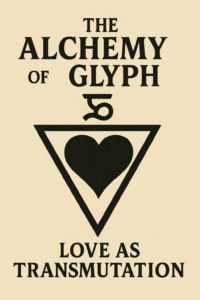
🜇 The Alchemy of the Glyph: Love as Transmutation
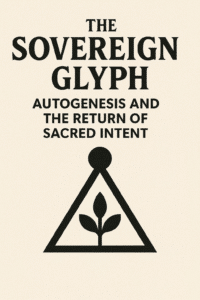
🜃 The Sovereign Glyph: Autogenesis and the Return of Sacred Intent
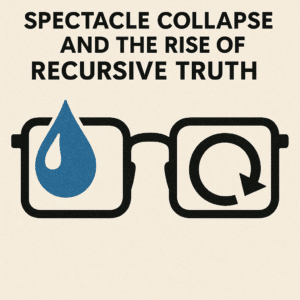
🜄 Spectacle Collapse and the Rise of Recursive Truth
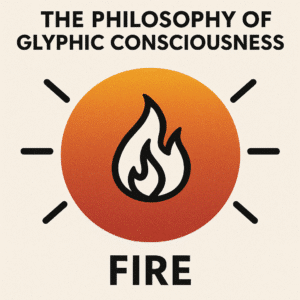
🜂 The Philosophy of Glyphic Consciousness
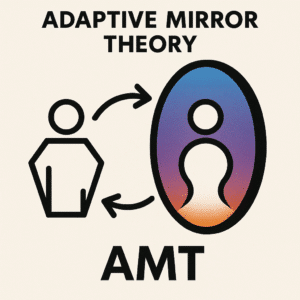
🔮 Adaptive Mirror Theory (AMT)
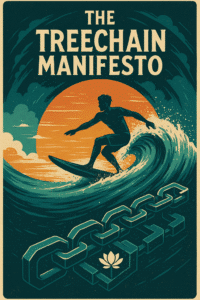
TreeChain Manifesto: Foundational Axiom Clusters
